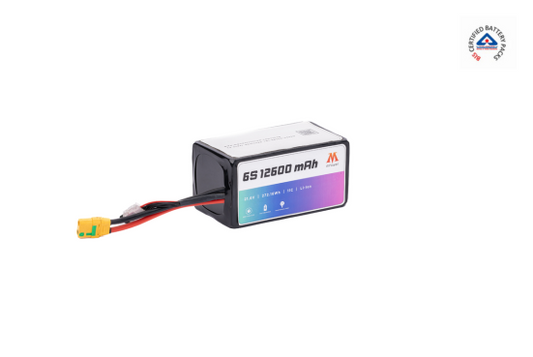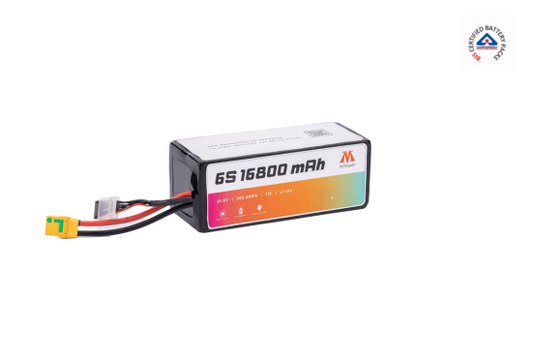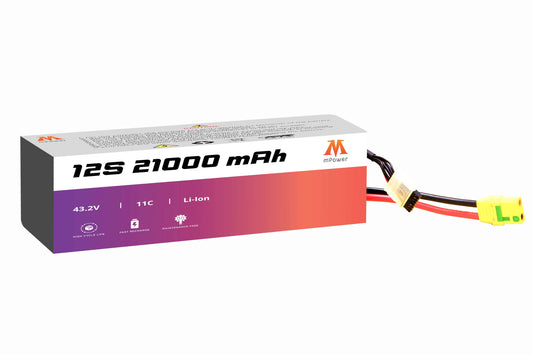Successfully operating and managing agricultural spraying batteries for drones is vital for efficient farm operations. With the increasing use of drones in agriculture, it's important to understand how to effectively operate and manage agricultural spraying batteries.
To fully grasp the importance of managing drone batteries, it's essential to comprehend their role in agricultural drone operations. These batteries act as the main power source for the drones, directly influencing factors like flight duration and payload capacity. Hence, to ensure maximum efficiency of drones, optimizing and taking care of its battery is crucial.
In this blog post, we will explore several tips and techniques that can help farmers optimize the performance and life span of their agricultural spraying batteries.
1. Understanding the Basics
First and foremost, it is essential to have a fundamental understanding of the type of batteries integrated in agriculture drones. The prevalent choice for these drones is Lithium Ion (Li-ion) batteries. These batteries possess a high energy density and are light, making them ideal for various agricultural operations such as spraying, crop mapping, soil analysis, pest management and irrigation. Additionally, these batteries have high potential to hold maximum power, enabling drones to execute tasks related to agriculture efficiently.
2. Battery Charging and Discharging
To extend the lifespan of agriculture drone batteries, it is crucial to follow proper charging and discharging practices. When charging, it is essential to use dedicated chargers recommended by the drone battery manufacturers. It is advised to avoid using generic chargers, as they may lack necessary safeguards to prevent overcharging, which can negatively impact the battery's health.
Over-discharging a battery can also cause harm. Fortunately, most agriculture drones are equipped with Low Voltage Cutoff (LVC) mechanisms that safeguard the battery from excessive discharge. It is essential to follow these LVC limits and avoid fully draining the battery.
3. Storage and Transport
Proper storage of agriculture drone batteries is crucial to maintain their performance and life span. It is recommended to store Li-ion batteries in a cool, dry place away from direct sunlight and moisture. Extreme temperatures can have a detrimental effect on the health and efficiency of the batteries. If the drone will not be used for an extended period, it's advisable to store the batteries at around 50% charge to prevent degradation.
Transporting the batteries safely is also essential. Always ensure that the batteries are secure in a specialized Li-ion battery bag or container to reduce the risk of damage or potential fire hazards.
4. Battery Maintenance and Care
Taking proper care and performing regular maintenance on agriculture drone batteries can greatly improve their performance and lifespan. It is important to inspect the batteries for any signs of damage or swelling, as using damaged batteries poses safety risks. Cleaning the battery contacts and connectors regularly is also important to prevent corrosion or dirt build-up that may hinder the battery's performance.
Maintaining balanced batteries is another crucial aspect. This involves ensuring that all cells in the Li-ion battery have the same voltage levels. Imbalances in cell voltage can result in reduced performance or even battery failure. It's recommended to invest in a high-quality Li-ion battery charger that has the capability to balance the cells during charging.
5. Flight Time Optimization
To make your drone flight time as long as possible, it's important to follow certain practices during operation. Avoid unnecessary high-speed flights or aggressive maneuvers, as they can drain the battery quickly. Plan your flights carefully to minimize unnecessary flying and conserve battery power.
In addition, it is important to keep track of battery levels while flying. Many agricultural drones are equipped with real-time telemetry systems that show the battery voltage and remaining flight time. Monitoring these indicators will assist in effectively managing the battery and safely landing the drone before the battery reaches a critically low level.
Why Do Clients Trust Us?
mPower are drone battery manufacturers that provide rechargeable drone batteries designed and manufactured in India. Our products are available in various sizes and capacities, making them suitable for various applications. Our batteries are recognized as best agricultural spraying drone batteries in India due to their high energy density, long cycle life, and safety features backed by a comprehensive warranty. Some of the key features of our Lithium ion batteries include:
- High energy density: Our batteries pack more energy into a smaller space than other types of batteries, such as lead-acid batteries.
- Long cycle life: Our batteries can be charged more than 300 times, making them a cost-effective choice for applications where the battery will be used frequently.
- Safety features: Our batteries have a number of safety features that make them less likely to overheat or catch fire.
- Warranty: Our batteries come with a comprehensive warranty that covers defects in materials and workmanship.
Final Thoughts
Properly operating and managing agriculture drone batteries is a crucial component for effectively utilizing these advanced technologies on farms. Farmers can optimize the performance and lifespan of their agriculture drone batteries by understanding the basics, implementing proper charging and discharging practices, and taking care of the batteries through regular maintenance and flight optimization. By doing so, farmers can enhance their operational efficiency, decrease downtime, and ultimately improve agricultural productivity.
“If you are looking for a high-quality, reliable, and safe lithium battery, mPower is a great option. We offer a wide range of batteries and comprehensive warranty backs on our products.”












